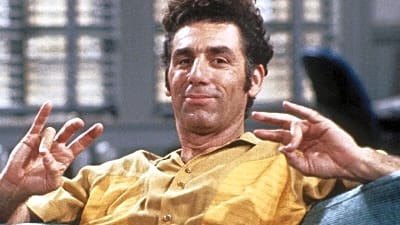Lili Edea, is an autistic Australian wrestler who debuted in PWA (Pro Wrestling Australia) in September 2024. A Self-described ballerina turned wrestler, in November 2022, her social media exchange with MJF grabbed headlines. James referenced this encounter in his wrestling article, which is a history of neurodivergence.
Lili kindly agreed to talk with James this year about her experiences as an autistic wrestler for Autism Awareness Month. Her words represent her and her experiences only. Thank you again for your time, Lili.
You can follow Lili on Instagram at https://t.co/ap3lflGlrI and X at: @Lili_Edea.
When were you diagnosed with autism?
“As a woman who was a girl in the 90s, it was very much for childhood diagnosis; all the research was done on boys. The diagnostic criteria were based on boys. There were suspicions earlyish in childhood, in terms of bullying, not being able to pay attention in classes, being “disruptive”. A word used throughout my entire childhood was “potential”.
My parents did the right thing. They tried not to figure out what was wrong but sought support. When they took me to a specialist, they said, “She’s not this, she’s just a difficult child, and that means you have to lock her in the laundry when she has a tantrum for one minute for every year of her age”. That was my diagnosis as a child!
From there, it was a situation that happens for a lot of late-diagnosed autistic people. I have a close friend who is autistic and who had her diagnosis. Everything she was describing, I do this too. We have things in common. I started looking into it more. Autistic/neurodivergent people seem to gravitate towards each other. It’s a “one of us, one of us” moment.”
Are you still waiting for an official diagnosis?
“My initial assessment was done in 2019. It was through a local therapist after my psychologist said, “Yeah, I wouldn’t be surprised if you were [autistic]”. Relevant to the current climate, diagnoses are so difficult to access because they are so expensive.”
There can be misconceptions of what autism is and isn’t.
“So much is people genuinely not knowing, so I never attribute to malice what can simply be attributed to ignorance. I’m adept at using the English language. I can articulate myself with correct grammar and vocabulary, but often I am misunderstood through misinterpreted additional meanings that I had never intended. Or I will miss things that others are implying because they weren’t stated directly.
So, from that, there can be a misconception that autism is typically perceived as about communication difficulties. But it’s a lot more than that. It’s just one element of the overall spectrum.”
Language is an interesting subject. Last year, Will Ospreay spoke about his belief that he is autistic and described it as a “superpower”, which is a contentious phrase within the autistic community.
“I have a lot of empathy for Will Ospreay as I know just as much as anyone that when you are first starting out, asking the questions: am I aren’t I, I probably am, you are going to start using language that you haven’t properly been exposed to. It comes with further research and education. I would imagine that he is just speaking from his own life experience and would wholeheartedly encourage anyone in that situation to look at a diagnosis to further know about themselves.
I have a lot of respect for Will Ospreay’s physical capabilities. On one hand, I would like to have this authentic representation of autism in the industry. I genuinely hope that he has become a better person post-Speaking Out allegations. But I also try to be analytical of how people use autism to present themselves publicly because some people will try and use it as a get-out-of-jail-free card.”
How does Autism impact your training?
“My brain struggles with things. When it comes to doing something in the ring, I am such a slow learner. My brain connects things to things that are already pre-existing or things that I understand. I don’t want to dismiss the hard work of anybody else, but I could almost describe it as my brain takes ten times as long to understand something as a neurotypical who might more naturally take to wrestling. That’s not to be dismissive of struggles neurotypicals have. It’s definitely not an easy thing, no matter who you are. It’s just like putting an extra hurdle or ten in a typical, standard running race.
I got stuck in fundies [fundamentals class] purgatory. It took me two failed attempts at grading to pass into the progressive level last year. Counting from when I first started training to when I actually had my debut match, it was a total of over 1,396 days. It still doesn’t intrinsically click, and I see and will continue to see so many people who started later than I have overtake me, lapping me and running circles around me.”
How do you deal with both the physical and emotional difficulties of learning to wrestle?
“Honestly, I have thought many times it would be nearly impossible to do this without feeling like a failure. In terms, I’m not meant for this, I want to quit this, what am I doing? Why am I here? I’m an idiot. Why am I putting myself through this? But as I like to say, the horrors persist and so do I. That’s my rationale between continuing to do it even though I am not made for it, essentially.
One of my biggest life lessons is that you regret the things that you don’t do. Rather than, “Oh, that was so embarrassing and cringe. I wish I didn’t do that.” It’s fairly obvious I’m not going to become a WWE superstar in this lifetime. But I would at least rather actually do the things that I enjoy than be a passive consumer of it.”
What advice would you give to any autistic or neurodivergent folks who wants to become a wrestler?
“Honestly, just give yourself grace, give yourself patience, give yourself time. Often, what makes it onto the TV is the best of the very best. If we are using Will Ospreay as the example, don’t think because you’re autistic and you’re not Will Ospreay that there isn’t space for you, because there still can be. There is space for us within the community. We have to be patient with ourselves to find the right time and right moment. Ultimately, it should come down to how much you are enjoying it. Obviously, some people want to make this their career, and there’s nothing wrong with wanting it.
I’ve found the most enjoyment I have had with wrestling is focusing on myself. Focusing on my goals, focusing on my achievement, focusing on achieving little, smaller milestones along the way. If you are chasing one big goal, you may never be satisfied. If you allow yourself to be happy with learning a kip-up in training, then that’s going to be the moments that keep you happy and keep you going. At the end of the day, this should always be fun.”
More must-reads:
- Ranking Kevin Durant's preferred destinations: West division foes offer biggest rewards
- Caitlin Clark effect leads Fever to defining win over Liberty
- The 'Golfers with multiple U.S. Open titles' quiz
Breaking News
Trending News
Customize Your Newsletter
 +
+
Get the latest news and rumors, customized to your favorite sports and teams. Emailed daily. Always free!







